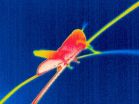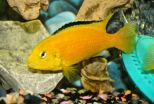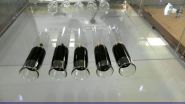(Press-News.org) DURHAM, N.C. -- If unwed parents are going to get married, the best window of opportunity for that union seems to be before their child turns 3, says a new study from Duke University.
But patterns vary greatly by race, with more African-American mothers marrying much later than mothers of other races or ethnicities.
Federal policies have often presumed that unmarried parents will be most receptive to marriage right after a baby's birth, a period that has been dubbed the "magic moment." The new study is the first to test that assumption, said author Christina Gibson-Davis.
"It turns out the 'magic moment' lasts longer than conventional wisdom has held," said Gibson-Davis, who teaches sociology at Duke's Sanford School of Public Policy and is a faculty fellow of the Duke Center for Child and Family Policy. "And for some subgroups, that moment lasts even longer."
Among African-American mothers, most marriages occurred after the child turned 3, says the study, which appears online July 2 in Demography.
The study also found that most children born out of wedlock don't remain so: 64 percent of children born out of wedlock see their moms get married, Gibson-Davis said. Many of those marriages don't last, however. Nearly half of post-conception marriages end in divorce, and those numbers are higher still for African-American women.
"These marriages are fragile," Gibson-Davis said. "If you think that stable marriage is beneficial for kids, very few kids born out of wedlock are experiencing that."
The odds improve somewhat when mothers marry their child's biological father, Gibson-Davis said. After 10 years, 38 percent of post-conception marriages involving biological parents had dissolved. In the same period of time, 54 percent of marriages to a stepfather had ended. Those findings held true across racial lines.
The study draws upon a nationally representative survey that looks at 5,255 U.S. children born out of wedlock.
Despite years of public attention to children born out of wedlock, big gaps remain in our picture of how these children actually live, Gibson-Davis said.
"Those who would promote marriage have more work to do," Gibson-Davis said.
INFORMATION:
CITATION: "Magic Moment? Maternal Marriage in Children Born out of Wedlock," Christina Gibson-Davis. Demography, July 2, 2014. DOI: 10.1007/s13524-014-0308-7
A 'magic moment' for unwed parents
Marriage between unwed parents more likely when child is young, but bonds are fragile
2014-07-02
ELSE PRESS RELEASES FROM THIS DATE:
How do ants get around? Ultra-sensitive machines measure their every step…
2014-07-02
How do ants manage to move so nimbly whilst coordinating three pairs of legs and a behind that weighs up to 60% of their body mass? German scientists have recently developed a device that may reveal the answer.
Measuring the forces generated by single limbs is vital to understanding the energetics of animal locomotion. However, with very small animals such as insects, this becomes problematic. Dr Reinhardt (Friedrich-Schiller University) used an elastic polycarbonate material to produce a miniature force plate. Springs arranged at right angles to each other enabled forces ...
Locusts harness the sun to get their optimum diet
2014-07-02
If you are a locust, the most nutritious plant to eat depends on the ambient temperature. Scientists at the University of Sydney, Australia, have discovered that locusts choose their food and then where they digest it according to how hot it is.
Dr Fiona Clissold, who led the study, explains why temperature has such a large influence on insect diets. "Whilst an insect's metabolic rate increases exponentially with temperature, the rate at which locusts absorb protein and carbohydrate from different plants does not increase in step with temperature. As a result, nutrient ...
Smarter than you think: Fish can remember where they were fed 12 days later
2014-07-02
It is popularly believed that fish have a memory span of only 30 seconds. Canadian scientists, however, have demonstrated that this is far from true – in fact, fish can remember context and associations up to twelve days later.
The researchers studied African Cichlids (Labidochromis caeruleus), a popular aquarium species. These fish demonstrate many complex behaviours, including aggression, causing the scientists to predict that they could be capable of advanced memory tasks. Each fish was trained to enter a particular zone of the aquarium to receive a food reward, with ...
A sheep's early life experiences can shape behavior in later life
2014-07-02
New research has found that a sheep's experiences soon after birth can shape its later behaviour and also that of its offspring.
The study led by academics from the University of Bristol's School of Veterinary Sciences and published in the Royal Society journal Biology Letters investigated whether early-life experiences can alter behavioural responses to a naturally painful event in adulthood – giving birth – and also affect behaviour of the next generation.
The period following birth can be a challenging time for young lambs. They are usually tail-docked without analgesia ...
Patients with severe ME have little or no access to specialist treatment services
2014-07-02
One in three severely affected adults with ME in England have no access to local specialist services, new research has shown.
Published in the British Medical Journal Open, the research by the University of Southampton reveals NICE guidelines, which say severely affected patients with ME, otherwise known as chronic fatigue syndrome (CFS), should have access to specialist care, are not being met by many NHS Trusts across England.
Over a third of specialist adult ME/CFS services in the NHS provide no service to severely affected patients, and a further 12 per cent of ...
Nature of solids and liquids explored through new pitch drop experiment
2014-07-02
VIDEO:
The movie clip shows the bitumen flow from the top camera view, and corresponds to approximately 24 days of real time.
Click here for more information.
Physicists at Queen Mary University of London have set up a new pitch drop experiment for students to explore the difference between solid and liquids.
Known as the 'world's longest experiment', the set up at the University of Queensland was famous for taking ten years for a drop of pitch – a thick, black, sticky ...
New study involving CU-Boulder tells the tale of a kangaroo's tail
2014-07-02
VIDEO:
This video is an analysis of video of kangaroos walking has helped scientists discover how important their tails are during locomotion.
Click here for more information.
Kangaroos may be nature's best hoppers. But when they are grazing on all fours, which is most of the time, their tail becomes a powerful fifth leg, says a new study.
Involving researchers at the University of Colorado Boulder, Simon Fraser University in Burnaby, Canada, and the University of New ...
The Lancet: Nearly 80 percent of US deaths in the first three decades of life are due to unintentional injury or violence
2014-07-02
A new report on unintentional injury and violence in the United States, published in The Lancet as part of a new Series, The health of Americans [1], has found that prevention strategies across society show a great deal of promise in preventing unintended deaths and injuries.
According to the report, by CDC researchers from Atlanta, USA, more Americans between the ages of one and 30 die from injury than from any other cause. Every year, nearly 180 000 people in the USA die from preventable causes such as automobile crashes, drowning, firearm-related injuries, falls, ...
The Lancet: Infectious diseases cause significant burden in the USA
2014-07-02
Infectious diseases remain major public health challenges in the United States, according to a new report published in The Lancet as part of a new Series, The health of Americans [1]. Endemic conditions such as chronic viral hepatitis, human immunodeficiency virus, and other sexually transmitted infections continue to affect millions of individuals, with racial and ethnic minorities disproportionately affected. Emerging and re-emerging vector borne and zoonotic disease infections are threatening new areas and populations, as most recently observed with Chikungunya. Despite ...
The Lancet: Chronic disease prevention one of 21st century's key challenges
2014-07-02
According to a report on chronic diseases by Centers for Disease Control and Prevention researchers, published in The Lancet as part of a new Series, The health of Americans [1], half of all adults in the USA suffer from at least one chronic condition, such as diabetes, heart disease, or obesity, and over a quarter of adults have two or more. The majority of these chronic conditions stem from a small number of risk factors that are largely preventable, including tobacco use, poor diet, and physical inactivity (both strongly associated with obesity), alcohol consumption, ...
LAST 30 PRESS RELEASES:
Pekingese, Shih Tzu and Staffordshire Bull Terrier among twelve dog breeds at risk of serious breathing condition
Selected dog breeds with most breathing trouble identified in new study
Interplay of class and gender may influence social judgments differently between cultures
Pollen counts can be predicted by machine learning models using meteorological data with more than 80% accuracy even a week ahead, for both grass and birch tree pollen, which could be key in effective
Rewriting our understanding of early hominin dispersal to Eurasia
Rising simultaneous wildfire risk compromises international firefighting efforts
Honey bee "dance floors" can be accurately located with a new method, mapping where in the hive forager bees perform waggle dances to signal the location of pollen and nectar for their nestmates
Exercise and nutritional drinks can reduce the need for care in dementia
Michelson Medical Research Foundation awards $750,000 to rising immunology leaders
SfN announces Early Career Policy Ambassadors Class of 2026
Spiritual practices strongly associated with reduced risk for hazardous alcohol and drug use
Novel vaccine protects against C. diff disease and recurrence
An “electrical” circadian clock balances growth between shoots and roots
Largest study of rare skin cancer in Mexican patients shows its more complex than previously thought
Colonists dredged away Sydney’s natural oyster reefs. Now science knows how best to restore them.
Joint and independent associations of gestational diabetes and depression with childhood obesity
Spirituality and harmful or hazardous alcohol and other drug use
New plastic material could solve energy storage challenge, researchers report
Mapping protein production in brain cells yields new insights for brain disease
Exposing a hidden anchor for HIV replication
Can Europe be climate-neutral by 2050? New monitor tracks the pace of the energy transition
Major heart attack study reveals ‘survival paradox’: Frail men at higher risk of death than women despite better treatment
Medicare patients get different stroke care depending on plan, analysis reveals
Polyploidy-induced senescence may drive aging, tissue repair, and cancer risk
Study shows that treating patients with lifestyle medicine may help reduce clinician burnout
Experimental and numerical framework for acoustic streaming prediction in mid-air phased arrays
Ancestral motif enables broad DNA binding by NIN, a master regulator of rhizobial symbiosis
Macrophage immune cells need constant reminders to retain memories of prior infections
Ultra-endurance running may accelerate aging and breakdown of red blood cells
Ancient mind-body practice proven to lower blood pressure in clinical trial
[Press-News.org] A 'magic moment' for unwed parentsMarriage between unwed parents more likely when child is young, but bonds are fragile



